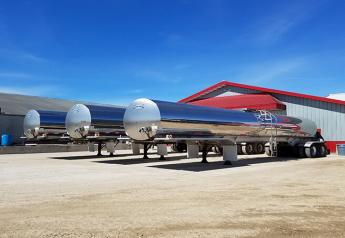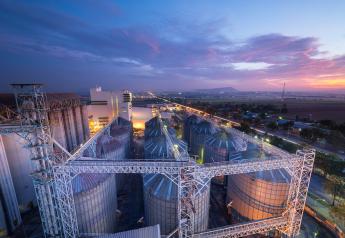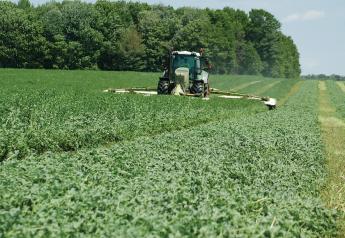EPA Requests California's Chino Area Dairies to Accept Manure Run-Off Measures

The U.S. Environmental Protection Agency is requiring that 13 dairies in and near Chino take preventative measures to avoid manure runoff before the winter rains.
The agency, which made the announcement on Monday, is ordering the dairies to comply with Clean Water Act requirements to avert waste and other pollutants from reaching local waterways.
"To protect the Santa Ana River watershed, we're taking action to ensure these dairies are prepared for the upcoming winter rains, when animal waste could flow from their dairies into nearby creeks and streams," said Jared Blumenfeld, EPA's regional administrator for the Pacific Southwest. "We will also be evaluating whether monetary penalties are appropriate, pursuant to our authority under the federal Clean Water Act."
The EPA order intends to improve the dairies' environmental performance as quickly as possible by bringing them into compliance with basic requirements of their permits, according to an EPA news release.
Inspections between November 2010 and February were conducted by water board representatives to evaluate permit compliance.
The compliances are an ongoing focus of the EPA and the Regional Water Quality Control Board.
Among the violations discovered at several dairies:
Failure to construct or maintain controls necessary to prevent manure and other contaminants from discharging into waterways.
- Failure to take reasonable steps to minimize or prevent discharges.
- Failure to develop and implement engineered waste management plans.
- Failure to conduct proper routine inspections of the facility.
The compliance includes standard procedures and preventative measures, Rob Vandenheuvel, general manager of Milk Producers Council, a nonprofit that represents dairy families in California.
"They found a few items that they want to address, this doesn't mean that any of the dairies had manure runoff issues," Vandenheuvel said.
However, the changes is going to make a difference for at least one company's pocketbook.
"These are expensive changes, just to dig out dirt and make our berms higher will cost $40,000," said Nick Koot, who has worked at the Chino-Koot Dairy for more than a decade.
"These changes are more of a burden. We had plenty of rain last year and none my water went down the road."
Building new berms is expensive, but a lot of these dairies will have to touch up their farms or fill out some paperwork, Vandenheuvel said.
"The dairy industry is stressed financially and feed is very expensive," he said. "Corn and hay are all at a record high and milk is at a historically high level, and these dairies may not be making as much money and these changes could affect them, yes.
"I think it is concerning, but once we get in there, and look at them at a case-by-case basis it may not be. We're hoping that this is a more of touch up than a total rebuilding."
Officials at Western United Dairymen -- the largest dairy producer trade association in the Western United States -- said they're beginning to reach out to the dairies to provide assistance in meeting EPA regulations and maintain the requirements.
"These are kind of extraordinary times because we haven't had that much water as we did last winter and I think that's a challenge for any dairy producer to handle," said Michael Marsh, chief executive officer with Western United.
Historically, dairyfarms have done a good job of creating waste management and nutrient management plans to help protect water quality, "and that plays into the rarity that they would have any discharge with manure or other pollutants at all," Marsh said.
canan.tasci@inlandnewspapers.com







